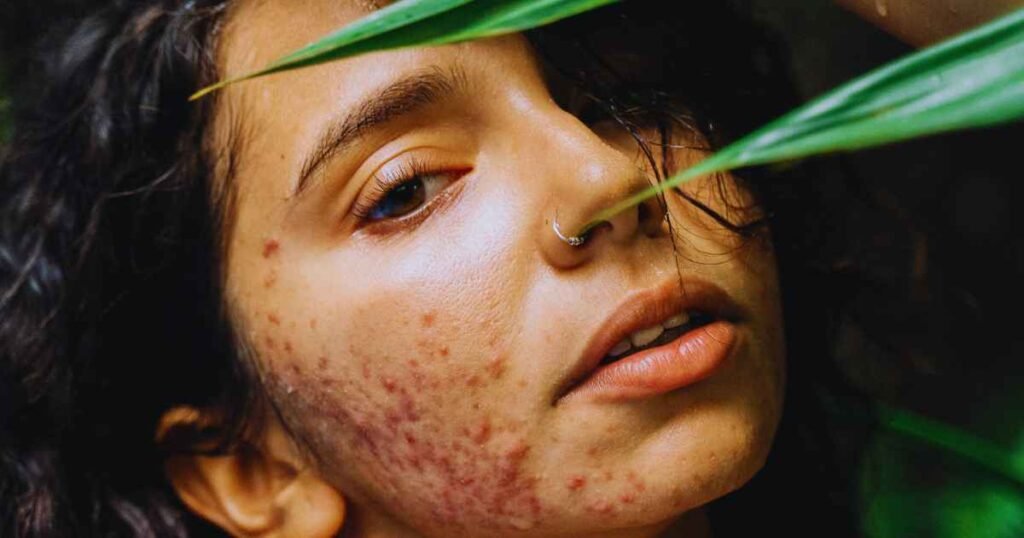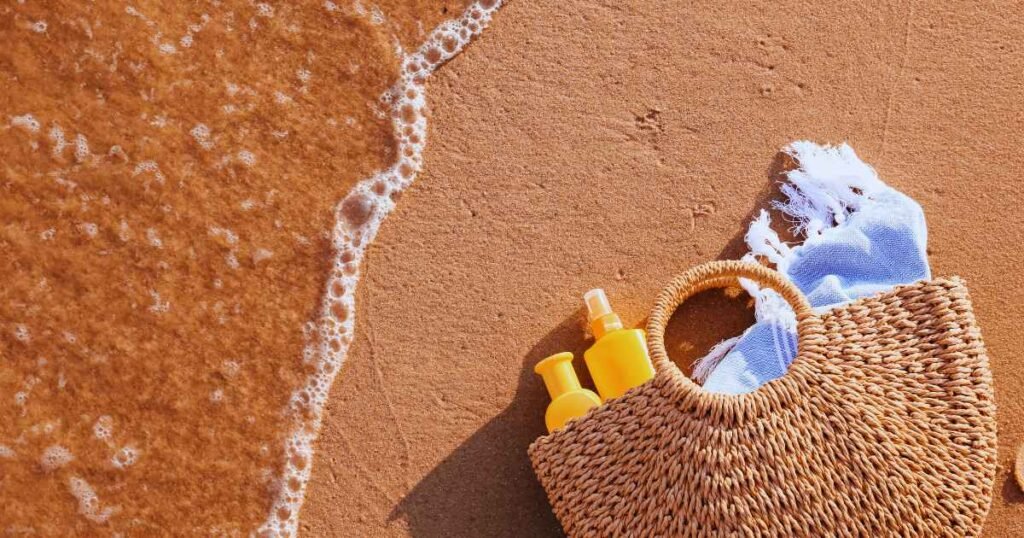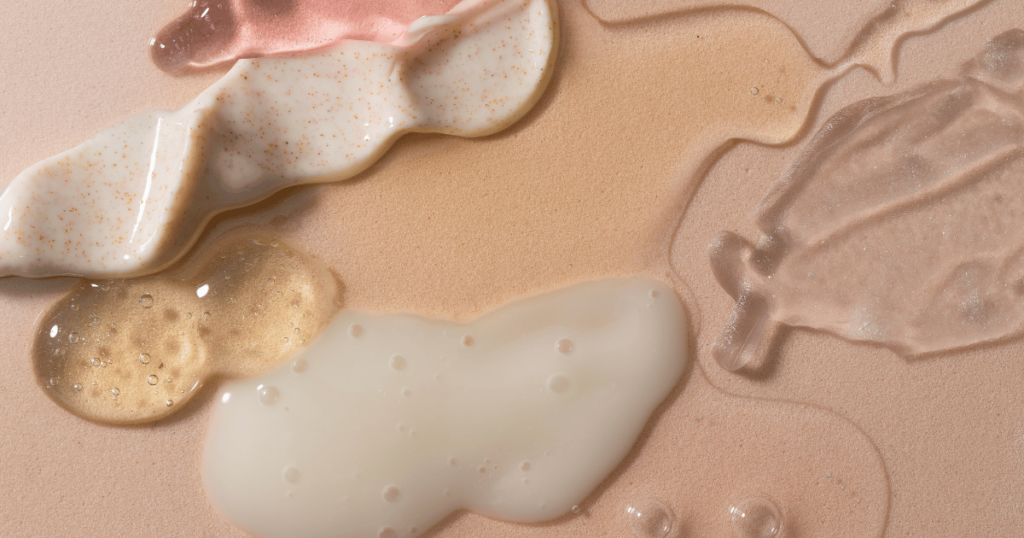Can rice water help with acne?

In the ever-evolving world of skincare, natural remedies have taken center stage, promising benefits without the harsh side effects of synthetic ingredients. Among these, rice water has garnered attention for its potential to improve skin health and tackle stubborn acne. But does this simple, age-old elixir really have what it takes to clear your skin? If you’re curious about how rice water might help with acne, you’re in the right place.
In this blog, we’ll dive into the science and tradition behind rice water, exploring its key components and how they might benefit acne-prone skin. We’ll also guide you through easy, at-home methods for incorporating rice water into your skincare routine. Whether you’re a skincare enthusiast looking to experiment with natural treatments or someone seeking a gentle remedy for acne, join us as we uncover the truth about rice water and its potential to transform your complexion.
What is Rice Water?
Have you ever wondered about the secret behind the glowing, flawless skin often seen in East Asian beauty rituals? One of the age-old beauty elixirs that has gained immense popularity recently is none other than rice water. But what exactly is rice water, and why is it creating such a buzz in the skincare world?
Rice water is the starchy liquid left behind after soaking or cooking rice. For centuries, women in countries like Japan, China, and Korea have harnessed the power of this simple, yet potent, liquid to maintain their skin’s health and beauty. From the Japanese court ladies of the Heian period, who used rice water for their long, lustrous hair, to the Korean royal families, who incorporated it into their skincare routines, rice water has a rich history steeped in tradition.
The process of making rice water is incredibly straightforward. You can either soak rice in water, boil it, or ferment it to extract its beneficial components. Each method has its unique benefits, but the result is a nutrient-rich, milky liquid brimming with vitamins, minerals, and amino acids.
But why has rice water stood the test of time in beauty practices? The answer lies in its composition. Packed with vitamins B, C, and E, along with minerals like magnesium and potassium, rice water provides a nourishing boost to the skin. Additionally, it contains ferulic acid, a powerful antioxidant, and allantoin, which is known for its anti-inflammatory properties. These ingredients collectively work wonders for the skin, making rice water a natural powerhouse for various skin concerns, including acne.
In the next sections, we’ll delve deeper into the science behind rice water’s benefits, particularly for acne-prone skin, and explore how you can incorporate this natural remedy into your skincare routine. Stay tuned to discover if this ancient beauty secret can be the modern solution to your acne woes!
The Nutritional and Chemical Composition of Rice Water
Rice water isn’t just a simple kitchen byproduct; it’s a nutrient-packed elixir that’s been treasured in beauty routines for centuries. So, what makes this starchy liquid so special for your skin, especially when battling acne? Let’s dive into the science behind its magical properties.
The Powerhouse Components
-
Vitamins Galore
- Vitamin B: Known as a natural skin healer, vitamin B in rice water helps to promote new cell growth and improve the skin’s resilience. It’s like a gentle boost for your skin’s renewal process.
- Vitamin E: This antioxidant powerhouse helps combat free radicals, which can damage skin cells and exacerbate acne. Vitamin E also supports skin repair and hydration, leaving your skin looking smoother and more radiant.
-
Mineral Magic
- Magnesium: This mineral is crucial for maintaining the skin’s barrier function, reducing the likelihood of breakouts by keeping harmful bacteria at bay.
- Potassium: Essential for maintaining skin moisture levels, potassium helps prevent dryness and irritation that can worsen acne.
-
Amino Acids and Ferulic Acid
- Amino Acids: These building blocks of protein help to repair damaged skin and maintain its elasticity. They also have anti-inflammatory properties, which can soothe irritated skin.
- Ferulic Acid: An antioxidant that enhances the stability and potency of vitamins C and E, ferulic acid in rice water adds an extra layer of protection against oxidative stress and skin aging.
The Science Behind the Magic
- Anti-inflammatory Properties: Acne is often accompanied by redness and inflammation. The anti-inflammatory compounds in rice water, such as allantoin, help to calm the skin and reduce these symptoms, making your complexion appear more even and less irritated.
- Oil Control: One of the key contributors to acne is excess sebum production. Rice water contains natural astringent properties that can help balance and control oil levels on your skin, reducing the likelihood of clogged pores and breakouts.
- Antioxidant Benefits: Rice water is rich in antioxidants that protect your skin from environmental damage. These antioxidants fight free radicals, which can cause oxidative stress and contribute to the development of acne and premature aging.
While the exact mechanisms of how rice water works on acne-prone skin are still being explored, its impressive combination of vitamins, minerals, and antioxidants offers a natural and gentle approach to skincare. This humble ingredient, often overlooked, packs a powerful punch in the fight against acne, making it a worthy addition to any skincare routine.
By harnessing the power of rice water, you might just find your skin becoming clearer, more balanced, and beautifully radiant. Ready to make some rice water magic? Let’s continue to discover how you can incorporate this wonder ingredient into your daily regimen.
How Rice Water Might Help with Acne
If you’re battling acne, you might be willing to try just about anything to clear up your skin. Enter rice water, an age-old beauty secret that’s gaining modern-day popularity. But can this simple, natural remedy really help with acne? Let’s dive into the potential benefits and see what makes rice water a contender in the fight against breakouts.
Anti-inflammatory Properties: Calm the Redness
Acne is often accompanied by inflammation, causing redness and swelling that can be both painful and frustrating. Rice water is rich in anti-inflammatory compounds, such as allantoin, which can help soothe irritated skin. Applying rice water to your face might help calm those angry red spots and reduce the overall inflammation, giving your skin a more even-toned appearance.
Antioxidant Effects: Protect and Heal
Rice water is packed with antioxidants, which are known for their ability to fight free radicals – the nasty molecules that can cause cellular damage and accelerate the aging process. By using rice water, you can give your skin a protective shield against environmental stressors that contribute to acne. These antioxidants also promote healing, potentially helping to fade acne scars and prevent future breakouts.
Oil Control: Keep the Shine in Check
Excess oil production is a major culprit behind clogged pores and acne. Rice water contains astringent properties, which can help tighten the skin and regulate sebum (oil) production. By balancing your skin’s oil levels, rice water might help keep your pores clear and reduce the likelihood of acne flare-ups. Think of it as a gentle, natural toner that works to keep the shine at bay.
Gentle Exfoliation: Clear the Way
Dead skin cells can build up on the surface of your skin, leading to clogged pores and acne. The starch in rice water provides gentle exfoliation, helping to slough off those dead cells and promote cell turnover. This mild exfoliating action can leave your skin feeling smoother and looking more radiant, all while keeping those pesky pimples at bay.
Hydration Boost: Nourish and Rejuvenate
Keeping your skin hydrated is crucial, especially when dealing with acne. Dry, irritated skin can exacerbate acne and make it harder to heal. Rice water is a great hydrator, providing your skin with a moisture boost without clogging your pores. It helps to maintain a healthy skin barrier, ensuring your skin stays plump, soft, and resilient.
Science and Anecdotes: What Do They Say?
While scientific studies on rice water specifically for acne are limited, its components suggest promising benefits. Anecdotal evidence from beauty enthusiasts around the world supports its effectiveness. Many people report clearer, brighter skin after incorporating rice water into their routines. Though more research is needed, the existing evidence and user experiences make rice water worth a try.
By understanding how rice water can potentially benefit your acne-prone skin, you can make an informed decision about adding it to your skincare arsenal. It’s natural, affordable, and easy to make – a combination that makes it an appealing option for anyone looking to improve their skin health.
Ready to give rice water a shot? Let’s move on to how you can make and use it in your skincare routine!
How to Use Rice Water for Acne
Ready to dive into the world of rice water and see how it can transform your skin? Let’s get started with some easy and effective ways to incorporate this natural remedy into your skincare routine.
Step-by-Step Guide to Making Rice Water at Home
What You’ll Need:
- 1/2 cup of uncooked rice (white, brown, or jasmine rice will do)
- 2-3 cups of water
- A clean bowl
- A fine-mesh strainer or sieve
Instructions:
- Rinse the Rice: Place the rice in a bowl and rinse it with water to remove any dirt or impurities.
- Soak the Rice: Fill the bowl with 2-3 cups of water and let the rice soak for about 30 minutes. Swirl it around occasionally to help release the nutrients.
- Strain the Rice Water: After soaking, strain the rice and save the water. Your rice water is now ready to use!
Different Methods of Application
As a Toner:
- How to Use: Pour the rice water into a clean spray bottle or simply soak a cotton pad in it.
- Application: After cleansing your face, spritz the rice water onto your skin or gently wipe it over your face with the cotton pad. Let it dry naturally before applying your moisturizer.
As a Face Wash:
- How to Use: Pour some rice water into your hands and splash it onto your face.
- Application: Massage gently for a minute, then rinse off with lukewarm water. This can be done twice a day, morning and night.
As a Face Mask:
- How to Use: Mix rice water with a bit of rice flour to create a paste.
- Application: Apply the paste to your face, avoiding the eye area. Leave it on for 10-15 minutes, then rinse off with lukewarm water. Use this mask once or twice a week for best results.
Tips for Incorporating Rice Water into Your Skincare Routine
- Consistency is Key: Like any skincare treatment, regular use will yield the best results. Aim to use rice water daily for noticeable improvements.
- Combine with Other Ingredients: Enhance the benefits of rice water by mixing it with a few drops of tea tree oil or aloe vera gel, especially if you have sensitive or acne-prone skin.
- Storage: Keep your rice water in the refrigerator and use it within a week to ensure it stays fresh and effective.
Incorporating rice water into your skincare routine is simple, affordable, and can be done with ingredients you likely already have in your kitchen. Give these methods a try and enjoy the soothing, acne-fighting benefits of this ancient beauty secret.
Potential Side Effects and Precautions
While rice water has gained popularity for its potential skincare benefits, it’s essential to be aware of potential side effects and take necessary precautions before incorporating it into your routine. Here’s what you need to know:
Potential Side Effects
Skin Irritation: Although rice water is generally considered gentle, some individuals may experience skin irritation, redness, or itching. This could be due to an allergic reaction or sensitivity to certain components in the rice water.
Dryness: For those with naturally dry skin, rice water might exacerbate dryness due to its starchy content. If you notice increased dryness, it might be best to limit the frequency of use or follow up with a good moisturizer.
Breakouts: While it seems counterintuitive, some people may find that rice water triggers breakouts. This could happen if the rice water isn’t properly strained and residual particles clog the pores.
Precautions to Take
Patch Test: Before applying rice water to your face, do a patch test on a small area of your skin, like the inside of your wrist. Wait 24 hours to see if any irritation or adverse reactions occur. If everything looks good, proceed to use it on your face.
Fresh is Best: Always use freshly prepared rice water. Bacterial growth can occur if rice water is stored for too long, which could lead to skin infections or irritation. If you need to store it, keep it in the refrigerator and use it within a week.
Dilution is Key: If you have sensitive skin, consider diluting the rice water with equal parts of plain water. This can help minimize the risk of irritation while still providing benefits.
Consult a Dermatologist: If you have severe acne or other skin conditions, it’s always a good idea to consult with a dermatologist before trying new home remedies. They can provide personalized advice and ensure that rice water won’t interfere with any treatments or medications you’re currently using.
Special Considerations
- Existing Skin Conditions: If you have eczema, rosacea, or any other chronic skin conditions, be extra cautious. While rice water is natural, it may still aggravate certain conditions.
- Frequency of Use: Start by using rice water a few times a week and observe how your skin responds. Overuse can lead to dryness or irritation, so it’s important to find a balance that works for you.
By taking these precautions, you can enjoy the potential benefits of rice water while minimizing the risks. Remember, what works wonders for one person’s skin might not work the same for another, so it’s all about finding what’s best for you.
In conclusion, while rice water holds promise as a natural remedy for acne, it’s important to approach it with realistic expectations. Its anti-inflammatory properties, rich antioxidant content, and potential to regulate oil production make it an intriguing addition to your skincare routine. However, like any skincare product, its effectiveness can vary from person to person.
If you’re curious about giving rice water a try, start by incorporating it gradually into your routine and be mindful of any changes in your skin. Remember, the journey to clear skin is often a marathon, not a sprint, and finding what works best for you might take some experimentation.
We’d love to hear your thoughts and experiences! Have you tried rice water for acne? What results did you see? Share your story in the comments below. And if you’re hungry for more natural skincare tips and secrets, don’t forget to subscribe to our blog and follow us on social media. Together, let’s discover the best of what nature has to offer for our skin! LOVE YAAAA!!



